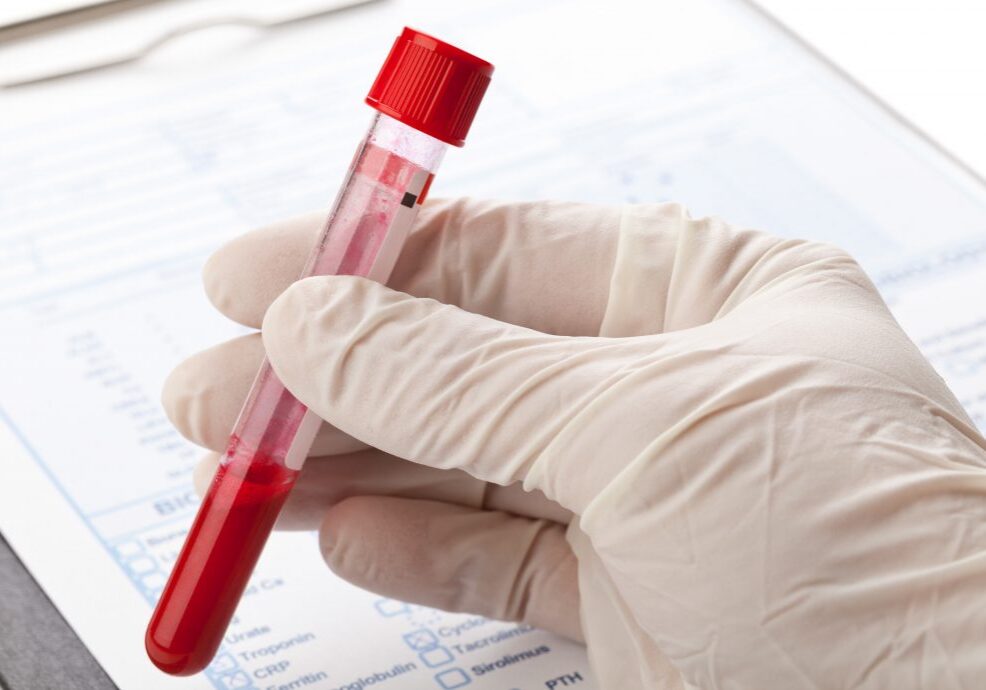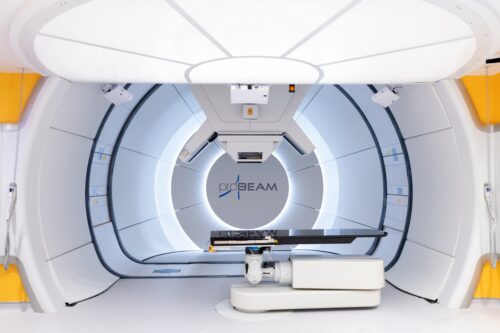Proton Beam Therapy Centre in London
Proton Beam Therapy offers new hope to patients
Proton Beam Therapy Centre in London is housed at University College London Hospitals (UCLH) NHS Foundation. The trust operate a £350 million facility which will treat 650 people a year, many of them children and teenagers with rare cancer.
Proton beam therapy offers significant benefits over conventional radiotherapy which uses high powered X-rays that pass all the way through the body, damaging tumours and healthy tissue alike.
Fewer side effects
However proton beam therapy delivers a more accurate beam of radiation that can be programmed to stop at the tumour site with no exit dose. This limits the impact on the surrounding healthy tissue, leading to fewer side effects and reduced long term consequences.
Patients treated with proton beam therapy range from very young children to adults who have hard to treat cancers. These may be tumours in the brain, on the spine, or near the reproductive organs, where it is particularly important to protect the surrounding tissue. Around a third of the patients will be children and teenagers.
Second centre follows Manchester´s opening in 2018
The UCLH proton beam therapy centre is only the second of its kind in the UK after the first centre opened in Manchester in 2018. The new central London centre near Euston means that there is now national coverage for the cutting-edge cancer treatment. The incredible equipment needed to deliver this precise treatment is in the basement of UCLH Grafton Way building.
Previously patients had to go abroad for treatment to centres in Switzerland, the US and Germany. Ultimately the national proton beam therapy service operating out of UCLH and The Christie in Manchester will treat up to 1,300 patients across England.
How Proton beam therapy impacts patient experience
The cyclotron weighs 90 tonnes and is the size of a family car. It generates the protons spinning ionised hydrogen at two-thirds the speed of light. This beam is guided via massive magnets to one of the four treatment rooms, where a three-storey machine delivers the treatment to the patient with millimetre accuracy.
Oracle’s Honorary Trustee Prof Chris Nutting is involved with research for head and neck cancers and the use of Proton Beam Therapy. Says Chris, “The technology will also be used for research and I am will be closely involved in this as Chair of the National Cancer Research Institute’s (NCRI) Proton Beam Research Group. Funding for three phase III clinical trials comparing proton beam versus photon radiotherapy have been secured, one of them looking at the impact of proton beam therapy on oropharyngeal cancer.
Having two NHS proton beam therapy centres in England is very exciting and will deliver significant benefits for patients with hard-to-treat cancers.”

Using the power of football to help prevent cancer
This week, Oracle Head & Neck Cancer UK has launched an important awareness campaign in partnership with Bromley FC, using the reach of football to shine a light on head and neck cancer prevention and the life-saving importance of the HPV vaccine. Throughout the week, Bromley FC is sharing trusted health information with its supporters,…

Cancer Care: Why Mental Health Support Must Be Part of Every Cancer Journey
Oracle Head & Neck Cancer UK is proud to support the Daily Express Cancer Care campaign, a powerful series that shines a light on the often unseen emotional toll of cancer – and the urgent need for better psychological support for everyone affected. The campaign published over the past three weeks featured voices from across…

Ground-breaking blood test shows promise for early detection of head & neck and other hard-to-screen cancers
A new large-scale trial has found that the blood-based screening test known as Galleri test can detect more than 50 types of cancer – including cancers of the head and neck, which currently have no routine screening programme – and may significantly boost early diagnosis. The trial showed that, when used alongside existing screening methods,…

2 Minutes to Save Your Life: Oracle Launches HeadNeckCheck Campaign for Make Sense Week
This Make Sense Week (15-20 September), the European-wide head and neck cancer awareness initiative, Oracle Head & Neck Cancer UK, is championing both prevention and early detection – recognising that stopping cancer before it starts is just as vital as catching it early. Two Ways to Fight Cancer This Week Prevention Today: Head and neck…

Leadership update
After four successful years as CEO, Tamara Kahn has transformed Oracle into a respected national voice for head and neck cancer patients. She established a national presence, created a four-pillar RACE strategy (Research, Awareness, Collaboration and Patient/Community Engagement) and built strong policy influence. With these foundations now firmly in place, Tamara will transition from her…

Finding Light in Adversity: Seven inspiring stories through head and neck cancer
A new collection of patient stories from Oracle Head and Neck Cancer UK reveals how individuals facing head and neck cancer have discovered unexpected sources of strength, purpose and even joy during their treatment and recovery. The seven contributors share remarkably similar themes despite their unique journeys. Almost all emphasise the power of maintaining a…

NHS to fast-track patients with head and neck cancer into cancer vaccine trial
Patients with advanced head and neck cancers in England will be fast-tracked into a trial of a new cancer vaccine, as the NHS expands its world-leading trial ‘match-making’ service. The investigational cancer vaccine uses mRNA technology to help the immune system recognise and kill cancer cells containing human papillomavirus proteins. More than 100 patients with advanced head…

World Head and Neck Cancer Awareness Day 2025: The HPV Vaccine Could Save Your Life
27th July 2025 This World Head and Neck Cancer Awareness Day, Oracle Head and Neck Cancer UK has a simple but urgent message: HPV vaccination saves lives. With HPV-related head and neck cancers having doubled in the past 20 years, the charity is using today to remind the public that these devastating cancers are preventable…

Data from the National Disease Registration Service on HPV associated and HPV independent oropharyngeal squamous cell carcinoma
The Get Data Out Programme from the National Disease Registration Service (NDRS), part of NHS England, has published statistics on incidence, routes to diagnosis and treatment for patients diagnosed with oropharyngeal cancer in England by human papillomavirus (HPV) status. To our knowledge this is the first time data on oropharyngeal cancer by HPV status has…

Join Us for an Evening of Research, Impact, and Conversation
Research & Impact EveningDate: Monday 28th April 2025Time: 6:00 PM – 8:30 PMVenue: Skyline, Tower Suites, 100 Minories, London EC3N 1JY A Celebration of Research Join us for a meaningful and action-focused evening where we’ll be diving into some of the big conversations around head and neck cancer – especially those linked to HPV (human…



